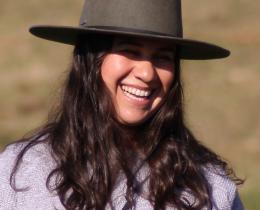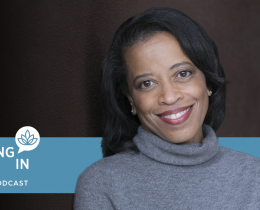Marshawn Feltus is a Chicago West Side native who attended his first yoga class while
incarcerated and went on to train more than 800 men in Ashtanga Yoga.
Omega: Can you talk about how you grew your yoga program in prison?
Marshawn: In prison, I was unofficially in charge of the gym. One of the things I started to notice was that most of the guys only wanted to participate in basketball. The administration came to me and asked, "What can we do about getting guys enrolled in GED and keeping the college programs?"
I created an incentive program. If the guys would enroll in school, get their GED, and go on to take college courses, then I would give them passes for the gymnasium for any events that they wanted to come to. It instantly became a huge hit.
The yoga program started to gain in popularity. More and more people could feel and see the instant physical benefits and more started to participate. When I initially noticed the numbers, we had 60 participants in the weekly class. In the next few months, we had more than 250 people participating. We had to open up the schedule and increase from two days a week to five days. Just shy of me leaving prison, I tallied up all the people from the sign-up sheets and we had more than 800 people that had come through the yoga program in two years.
In that same time, we had not one major incident while practicing. Mind you, this was a medium-maxium security facility, which meant there were murderers, rapists, arsonists, any violent crime you can think of. These were guys that came from all walks of life. We really did have the full spectrum of humanity in a room for an hour practicing on the same court.
Omega: How have you been working with your community?
Marshawn: I’m from the Austin neighborhood in the city of the Chicago. It’s one of the largest areas in Chicago, but it’s also an area where there’s the least amount of employment and opportunity. People are disenfranchised and disconnected at a very large percentage. I knew in my heart that the same way yoga changed me, it could benefit the community as well. I had never heard of any yoga programs or studios, and when I came back it was still true. It was a yoga desert.
Bringing water to a desert is a great thing, but not many people willingly come to the water. I had to get creative with the services my company was providing and take the water to the people. ACT Yoga has a mobile service that goes to churches, schools, offices, and prisons. Our concept is simple: to get people to look at what they can do with as little as they have.
Omega: What’s your life look like today?
Marshawn: Today, I’m a business owner, and one of few people in my family that owns a business. I sit on the board of different organizations. I mentor youth. I have the esteemed privilege of going back to the county jail to teach yoga to the men there. It’s an expanding practice for me to be able to handle these different areas of life and give it all structure.
Working with young people day to day keeps me on my toes. Some of them who need yoga the most are the ones least likely to do it because of peer pressure. I have to keep my mind present to the times when I was reluctant to do yoga. But in a very short period of time, they begin to see and feel the experience just like I did.






